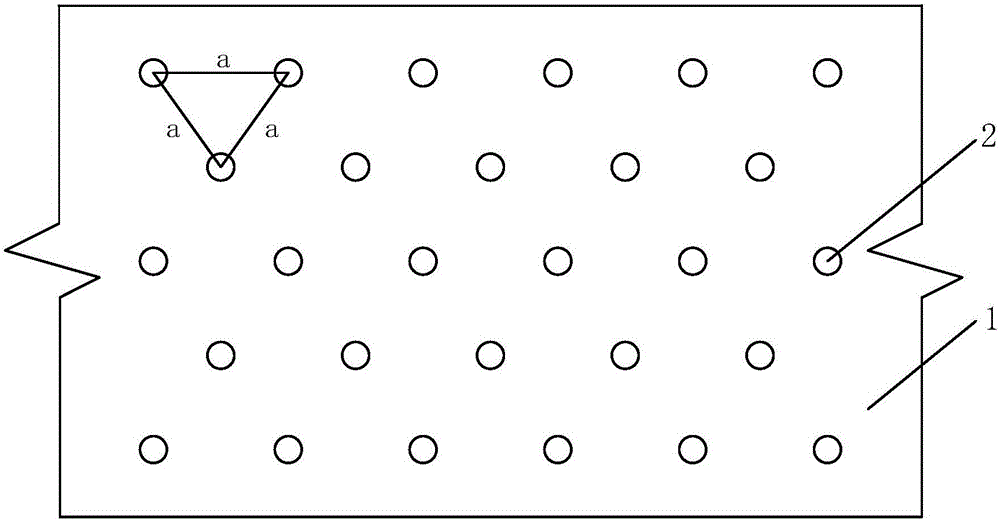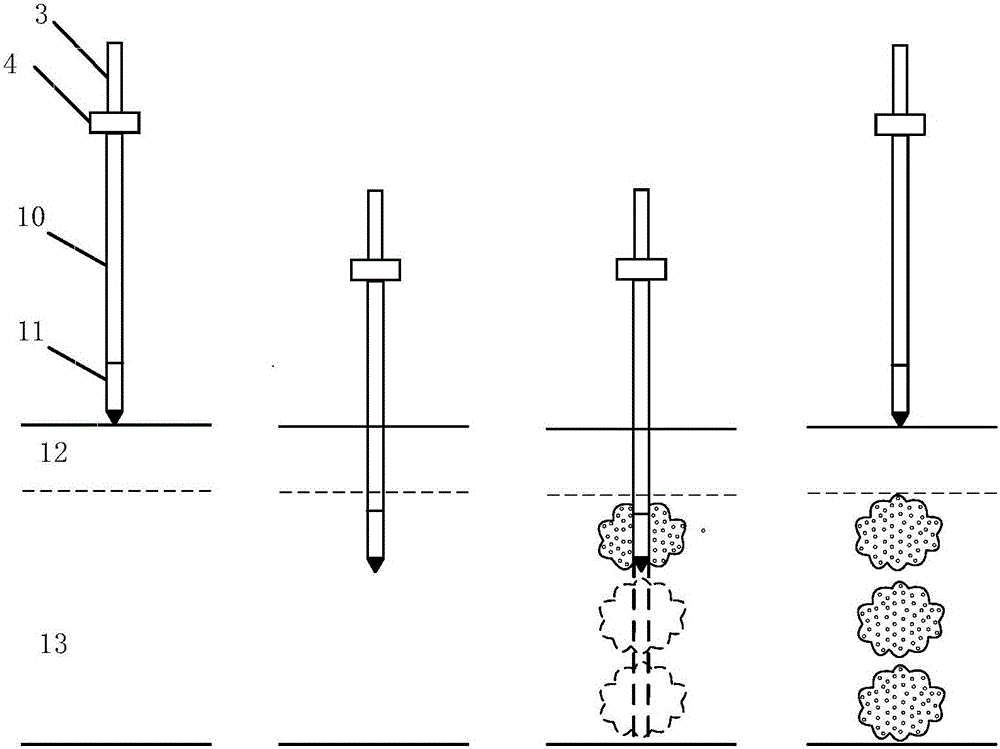Method for treating liquefiable sandy soil foundations by aid of microbial bubble
A sandy soil foundation and microbial technology, applied in soil protection, foundation structure engineering, construction, etc., can solve the problems of limited depth of treatment by dynamic compaction, difficulty in pile formation, and destruction of surrounding buildings, so as to improve the anti-liquefaction performance of soil , Enhance the anti-liquefaction ability of the soil, and enhance the effect of the shear strength of the soil
- Summary
- Abstract
- Description
- Claims
- Application Information
AI Technical Summary
Problems solved by technology
Method used
Image
Examples
Embodiment Construction
[0031] The present invention will be further explained below in conjunction with the accompanying drawings.
[0032] A method for treating liquefiable sandy ground using microbial air bubbles, comprising the steps of:
[0033] 1) According to the geological survey results, the position and depth of the area 1 to be reinforced are obtained, and the depth of the borehole 2 is determined.
[0034] 2), Borehole positioning: Boreholes 2 are arranged in a quincunx shape, and the distance a between boreholes 2 is 3-4m, such as figure 1 shown.
[0035] 3) Bacterial solution preparation: screening Pseudomonas stutzeri strains, preparing bacterial solution through enrichment culture, and storing it in the bacterial solution storage tank 9 .
[0036] 4), buried liquid injection nozzle: such as image 3 As shown, the top of the liquefiable soil layer 13 is called the overlying soil layer 12, and at the drilling position positioned in step 2), the hollow drill pipe 10 with the end conne...
PUM
 Login to View More
Login to View More Abstract
Description
Claims
Application Information
 Login to View More
Login to View More - R&D
- Intellectual Property
- Life Sciences
- Materials
- Tech Scout
- Unparalleled Data Quality
- Higher Quality Content
- 60% Fewer Hallucinations
Browse by: Latest US Patents, China's latest patents, Technical Efficacy Thesaurus, Application Domain, Technology Topic, Popular Technical Reports.
© 2025 PatSnap. All rights reserved.Legal|Privacy policy|Modern Slavery Act Transparency Statement|Sitemap|About US| Contact US: help@patsnap.com



